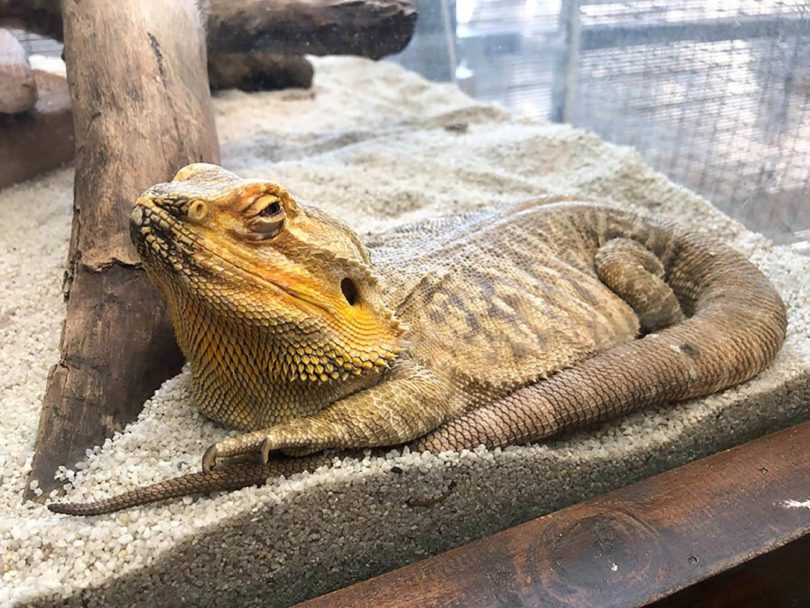
Bearded dragons are very popular pets. Anecdotally, they are perceived as relatively laid-back, sweet, and loving with their humans.
Like all reptiles, they do require a specific setup requirement which includes factors such as the correct temperature and humidity levels. Their diet comprises both animal-based protein and plant matter, with the composition changing according to their life stage.
Protein-rich eggs are considered a healthy addition to a human diet: in fact, we are encouraged to eat them because of the health benefits they offer, but are they safe for lizards and, specifically, bearded dragons? In brief, bearded dragons can safely consume cooked eggs in moderation.
Health Benefits of Eggs
Chicken eggs are the most popular eggs in the world, and typically the most readily available option at grocery stores. In many parts of the world, eggs are considered the most economical option as far a complete protein is concerned (for humans).
The nutritional breakdown of an egg is as follows:
Eggs are a great source of protein and fats, and contain all the essential amino acids for bearded dragons. This makes them a fantastic source of nutrition for baby and juvenile bearded dragons, as bearded dragons of these age groups require more animal-based protein than adults in maintenance.
The protein content of eggs can be a very useful addition to an adult bearded dragon’s diet when they’re recovering from an injury or illness, as protein is required for growth, repair, and maintenance of muscles.

Risks of Overfeeding Eggs to Bearded Dragons
The main concern with overfeeding eggs is that they have a less than ideal ratio of calcium to phosphorus. Bearded dragons are best when the calcium content in their diet is twice as much as the phosphorus content.
However, if eggs are used as a nutritional supplement to their diet, then the ratio of calcium to phosphorus isn’t of much concern, as the overwhelming majority of their diet will consist of other foods.
FAQ
How Many Eggs Can Bearded Dragons Eat?
Because the nutritional requirements of bearded dragons change throughout their life, the amount of eggs they can eat will depend on their life stage.
As a general rule, it is best to always consult your veterinarian before deciding on a meal and nutrition plan for your pet. In addition, bearded dragons should never be fed raw eggs.
How Do You Cook Eggs for Bearded Dragons?

Can Beardies Eat Egg Shells?
Egg shells are considered a source of calcium, and can be safely incorporated into the diets of many pets. However, it’s best to avoid giving your bearded dragon egg shells because they are usually quite sharp and can cause impaction. For calcium requirements, it’s best to dust cooked eggs with reptile calcium supplements.
What Type of Eggs Can Bearded Dragons Eat?
Chicken, quail, and duck eggs are all acceptable for bearded dragons. They can also consume exotic variants of eggs that are cooked (such as ostrich eggs). It is best to purchase pasteurized eggs for your bearded dragon, regardless of which bird egg you opt for.
Bearded dragons should not be fed the eggs of other reptiles, amphibians, or insects.
Final Thoughts
Cooked, unseasoned eggs of bird origin are not toxic for bearded dragons and can be safely incorporated into their diet as an occasional treat. Babies and juveniles are more likely to benefit from eggs in their diet, as they have a higher requirement for animal-based proteins when compared to adults.
As always, it is best to consult your exotic veterinarian if you have any doubts about your bearded dragon’s nutritional needs.
Related Reads:
Featured Image Credit: Karolina Grabowska, Pexels









